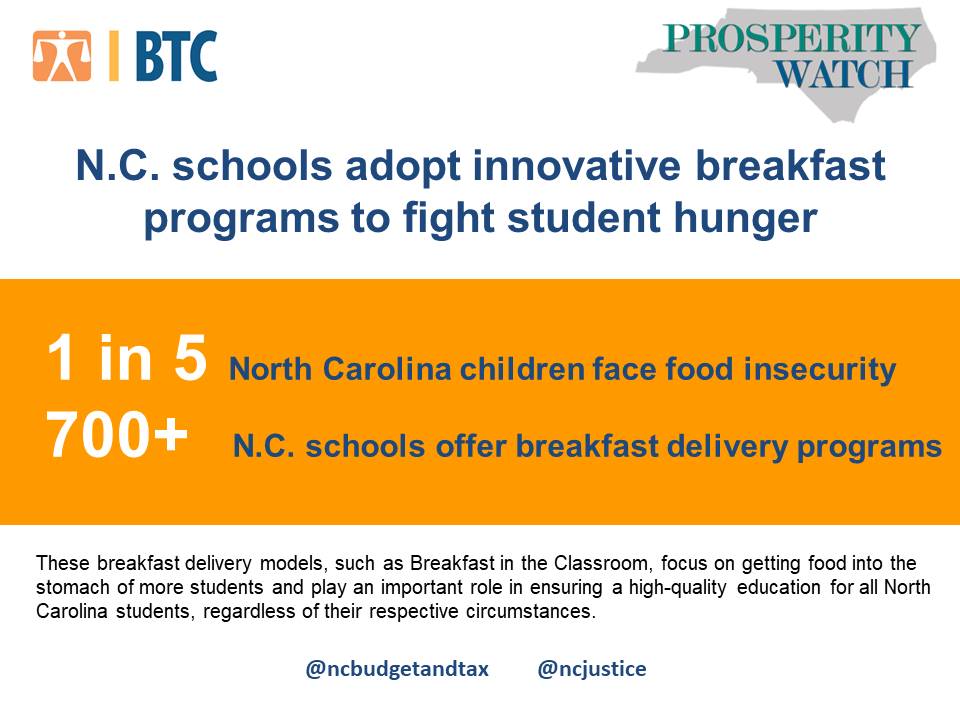It’s back to school time, which means that more than 1.5 million school-age children across North Carolina will enter public school classrooms each school day. While much of the discussion regarding North Carolina’s public schools often highlights what is missing and the various barriers to every student receiving a high-quality education, there are positive and promising things about our public schools that warrant attention.
Schools serve as community assets that not only teach students to read, write, and do math, but they also help address other barriers – such as access to health services and food insecurity – that impede the development of healthy, vibrant, and smart students.


The importance of the role that schools play in addressing child hunger is clear. One out of every 6 North Carolina households, and 1 in 5 North Carolina children, face food insecurity, meaning these families do not have access to adequate food needed to ensure that children are healthy, academically successful, and have sufficient early childhood development. For our public schools, this translates into more than half of North Carolina students returning to school this year being eligible for subsidized school meals.
To ensure that more students start their school day with food in their stomach, more than 700 schools across the state have adopted innovative breakfast delivery programs. Initiatives such as Breakfast in the Classroom, Grab ‘N Go, and Second Chance Breakfast aim to bridge “access” and “participation” in regards to students eating school breakfast. Schools recognize that access to school breakfast doesn’t automatically translate into students eating the school meal – late arrival to school, lack of time to eat, and the stigma associated with receiving subsidized school meals lead many students to not eat the provided breakfast. To address this problem, these innovative breakfast delivery models focus on getting food into the stomach of more students and play an important role in ensuring a high-quality education for all North Carolina students, regardless of their respective circumstances.
Around 650 schools have adopted community eligibility school meal programs – which provide school breakfast AND lunch free of charge to all students and families – to ensure that all children in their schools have access to nutritious meals throughout the school day. These schools have seen an increase in the number of students participating in their school breakfast and lunch programs. This is great news, as children that show up in classrooms each day fed and ready to learn are more likely to perform better academically and be more focused, attentive, and engaged.
Support for these successful local efforts to address child hunger and replicating them in more schools across the state will require a strong state-level commitment. North Carolina students are certainly worth such support. The future outlook for the Tar Heel state will only be as healthy, vibrant, and promising is its people.
 Justice Circle
Justice Circle